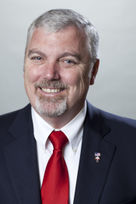Development of SEBoK v. 1.2
This version of the SEBoK was released 15 November 2013. This is a minor release of the SEBoK which includes two new articles, updates to existing articles, and new primary references. The Editorial Board released the associated version of the Sandbox in late November 2013.
Content and Feature Updates for v. 1.2
Changes between versions 1.1.2 and version 1.2 included:
- Two new articles: Integrating Supporting Aspects into System Models and Technical Leadership in Systems Engineering
- Heavy revision to Decision Management
- Minor edits to articles in Parts 1, 2, 3, 4, 5, and 6 and
- Two new primary references.
Specific updates by part were:
- In Part 1, there were minor typographical updates.
- In Part 2, there is a new article for SEBoK on integrating modeling of systems and supporting aspects via model-based systems engineering (MBSE) approaches. Supporting aspects include project management, risk management, requirements management, quality management, and verification and validation. Supporting aspects incorporated into system models or derived from these models enrich the model, facilitate structured and integrated management of these aspects, and capture their implictions on the system or vice versa. As MBSE becomes common practice for core system functionality, moving on to enveloping aspect modeling is the next step toward a holistic MBSE paradigm. This new article is called Integrating Supporting Aspects into System Models. Additionally, there were minor typographic edits to some articles.
- In Part 3, the Decision Management article was heavily rewritten to align with new Decision Management Process developed by the INCOSE Decision Analysis Working Group and several other articles were updated, including System Requirements, System Definition, System Concept Definition, Business or Mission Analysis (formerly Mission Analysis), and Relevant Standards. For Relevant Standards, additional linkages have been added to the existing standards. There were also updates to several figures within Part 3.
- In Part 4, updates were made to the Systems of Systems (SoS) and Service Systems Engineering knowledge areas to add new references in order to refresh the content. Over 25 new references have been added within these knowledge areas.
- In Part 5, a new topic was added on Technical Leadership in Systems Engineering within the Enabling Teams knowledge area.
- In Part 6, there were minor changes. The Editors incorporated some minor suggestions that were submitted via the Sandbox.
- There were no changes to Part 7 for v. 1.2.
SEBoK v. 1.2 Authors
Authors who contributed materials specifically to the v. 1.2 products are listed in Table 1, below.
| Author | Article |
|---|---|
| Matthew Cilli, Stevens Institute of Technology (PhD Candidate), USA | Decision Management |
| Yaniv Mordecai, Technion - Israel Institute of Technology, Israel | Integrating Supporting Aspects into Systems Models |
| Richard Swanson, High Performance Technologies Group, DRC, USA | Decision Management |
SEBoK v. 1.2 Editors
The Editorial Board for v. 1.2 is listed in Tables 2, 3, and 4 below.
| BKCASE Editors in Chief | |
|---|---|
|
Editor in Chief Art Pyster Stevens Institute of Technology (US) |
Co-Editor in Chief David H. Olwell Naval Postgraduate School (US) |
The Editor in Chief and Co-Editor in Chief were supported by the Associate Editors. Each Associate Editor's area(s) of responsibility are highlighted in Table 3 below.
| BKCASE Associate Editors | |
|---|---|
| Richard Adcock
Cranfield University and INCOSE UK (UK) Responsible for the Systems Fundamentals, Systems Science, Systems Thinking, and Systems Approach Applied to Engineered Systems knowledge areas in Part 2: Systems along with Cihan Dagli. |
Gregory Parnell
University of Arkansas (US) Responsible for the Representing Systems with Models knowledge area with Dov Dori in Part 2: Systems and the Systems Engineering Management knowledge area with Barry Boehm in Part 3: Systems Engineering and Management. |
| Barry Boehm
University of Southern California (US) Responsible for the Systems Engineering Management knowledge area with Greg Parnell and Life Cycle Models knowledge area; both are in Part 3: Systems Engineering and Management. |
Ricardo Pineda
Stevens Institute of Technology (US) Responsible for the Systems Engineering and Industrial Engineering knowledge area. |
| Cihan Dagli
Missouri University of Science & Technology (US) Responsible for the Systems Fundamentals, Systems Science, Systems Thinking, and Systems Approach Applied to Engineered Systems knowledge areas in Part 2: Systems along with Rick Adcock. |
Garry Roedler
Lockheed Martin (US) Responsible for the System Concept Definition and System Definition knowledge areas in Part 3: Systems Engineering and Management. |
| Judith Dahmann
MITRE Corporation (US) Responsible for Product Systems Engineering, Enterprise Systems Engineering, and Systems of Systems (SoS) in Part 4: Applications of Systems Engineering with Mike Henshaw. |
Brian Sauser
University of North Texas (US) Responsible for Part 7: Systems Engineering Implementation Examples, which includes Case Studies and Vignettes, with Brian White. |
| Heidi Davidz
Aerojet Rocketdyne (US) Responsible for the Enabling Individuals knowledge area with Tim Ferris and the Enabling Teams knowledge area in Part 5: Enabling Systems Engineering. |
Samuel Seymour
Johns Hopkins University Applied Physics Lab (APL) (US) Responsible for the Service Systems Engineering knowledge area in Part 4: Applications of Systems Engineering. |
| Dov Dori
Massachusetts Institute of Technology (USA) and Technion Israel Institute of Technology (Israel) Responsible for the Representing Systems with Models knowledge area with Greg Parnell and developer of the Integrating Supporting Aspects into System Models article. |
Ariela Sofer
George Mason University (US) Responsible for Part 1, including an overview of systems engineering and an overview of the SEBoK. |
| Timothy Ferris
University of South Australia (Australia) Responsible for the Enabling Individuals knowledge area in Part 5: Enabling Systems Engineering with Heidi Davidz. Tim is also developing a new article on Systems Engineering Education. |
Ricardo Valerdi
University of Arizona (US) Responsible for the System Realization knowledge area in Part 3: Systems Engineering and Management. Dr. Valerdi is also developing a new article on Systems Engineering References. |
| Michael Henshaw
Loughborough University (UK) Responsible for Product Systems Engineering, Enterprise Systems Engineering, and Systems of Systems (SoS) in Part 4: Applications of Systems Engineering with Judith Dahmann. |
Brian White
CAU>SE (US) Responsible for Part 7: Systems Engineering Implementation Examples, which includes Case Studies and Vignettes, with Brian Sauser. |
| James Martin
The Aerospace Corporation Supports the Systems Fundamentals and Enterprise Systems Engineering knowledge areas. |
Ken Zemrowski
TASC Responsible for the Systems Engineering Standards knowledge area. |
| Chris Paredis
Georgia Institute of Technology (US) Responsible for working across the SEBoK adding material on the theoretical underpinnings of systems engineering, including mathematical foundations. | |
The Assistant Editors provide general editorial support across all topics. They assist both with content improvement and production issues.
| BKCASE Assistant Editors | |
|---|---|
| Stephanie Enck
Naval Postgraduate School |
Nicole Hutchison
Stevens Institute of Technology |
| Devanandham Henry
Stevens Institute of Technology | |
Technical Editors
Updated articles went through technical editing to improve writing quality and consistency. Thanks go to our technical editor, Emily Leach, for her efforts.

